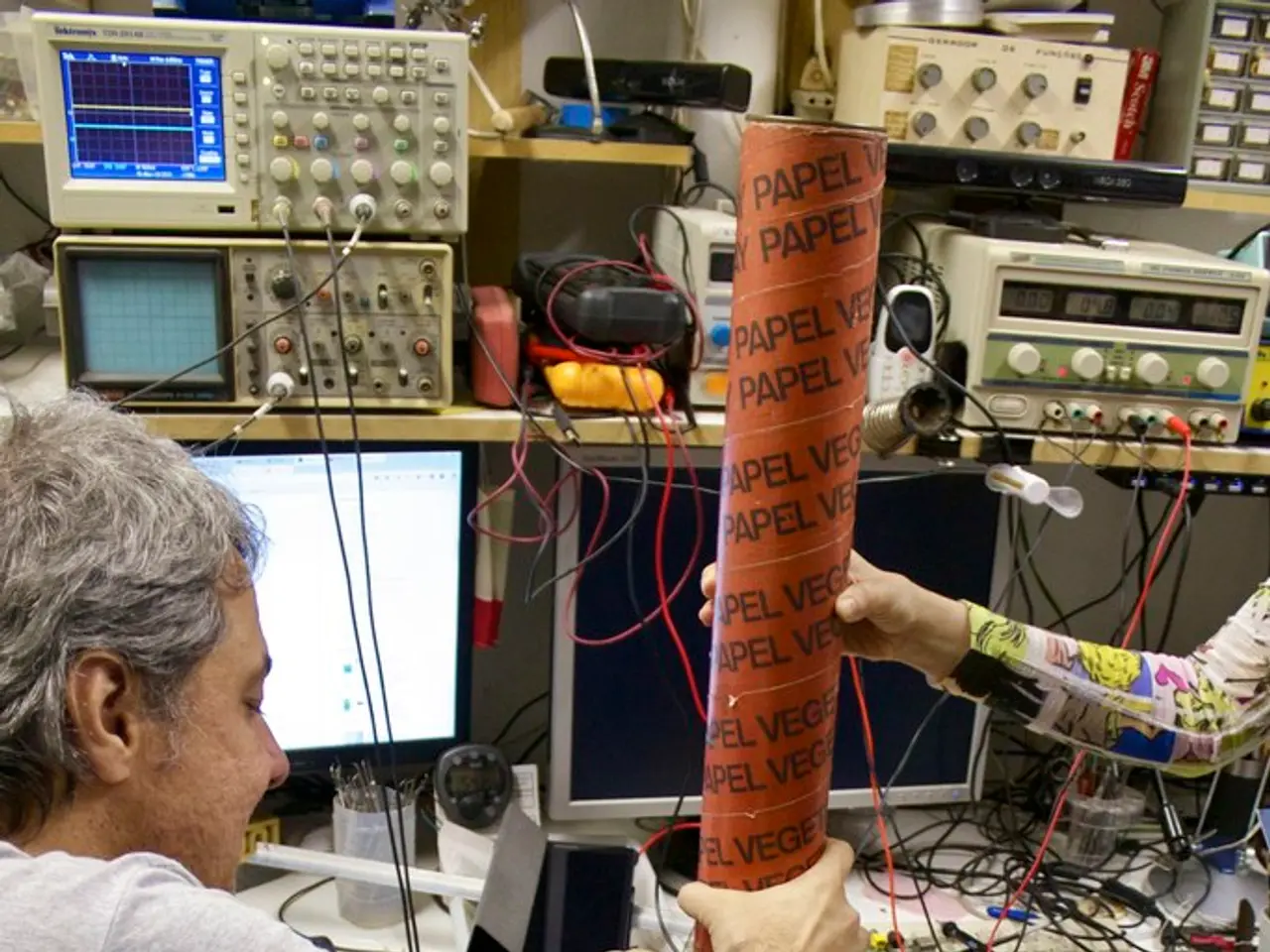Implant Technology: Uncovering Truth from Myths Regarding Elon Musk's Cerebral Device Statements
In the realm of technology, a groundbreaking development is taking place in the San Francisco Bay Area, California, USA, where Neuralink was founded in 2016. Neuralink, led by Elon Musk, is at the forefront of a new era in brain-computer interface (BCI) research.
The primary aim of Neuralink's technology is not to establish communication between a computer system and the brain, but rather to restore lost functionality, such as hearing, vision, or limb function. However, the company's innovative approach could potentially revolutionise the field of BCI in the future.
The main challenge in interfacing computers with biochemical structures lies in the fundamental difference in their power sources. While our bodies use ATP (adenosine triphosphate), devices use electricity. Neuralink's technology seeks to bridge this gap by developing 'threads' with dozens of individual contacts along their length, which are inserted into the grey matter of the target area to measure neuron signals at various depths.
These threads are connected to a device that does the actual sampling. In tests with rats, the device protrudes from the animal's skull and features a USB-C port for data access and power delivery. If made smaller and wireless, this device could allow for readings from hundreds to thousands of locations within the brain.
Processing brain signals to interpret their meaning is a complex task, even with invasive sensors. The accuracy of decoding brain signals for speech, for example, ranges between 40% and 80%, and is difficult without extended training sessions. Mapping vocalizations to specific brain patterns is particularly challenging when a person cannot speak.
Despite these challenges, progress in BCI research is slow but steady, hampered by the complexity of the task and ethical limitations. The field has been in existence for a long time, with the first cochlear implant being implanted in a patient in 1964 at Stanford University. Cochlear implants have been successful in restoring the ability to hear for hundreds of thousands of patients.
Brain-computer interfacing (BCI) is a wider field that includes experimental projects and fundamental research beyond practical neuroprosthetic implementations. Artificial intelligence, as envisioned by Elon Musk, would likely emerge through either sheer accident or a sudden increase in our understanding of how biological brains work.
As Neuralink continues to advance, it could potentially pave the way for a future where BCI technology becomes more widespread and integrated into our daily lives, transforming the way we interact with technology and each other.







